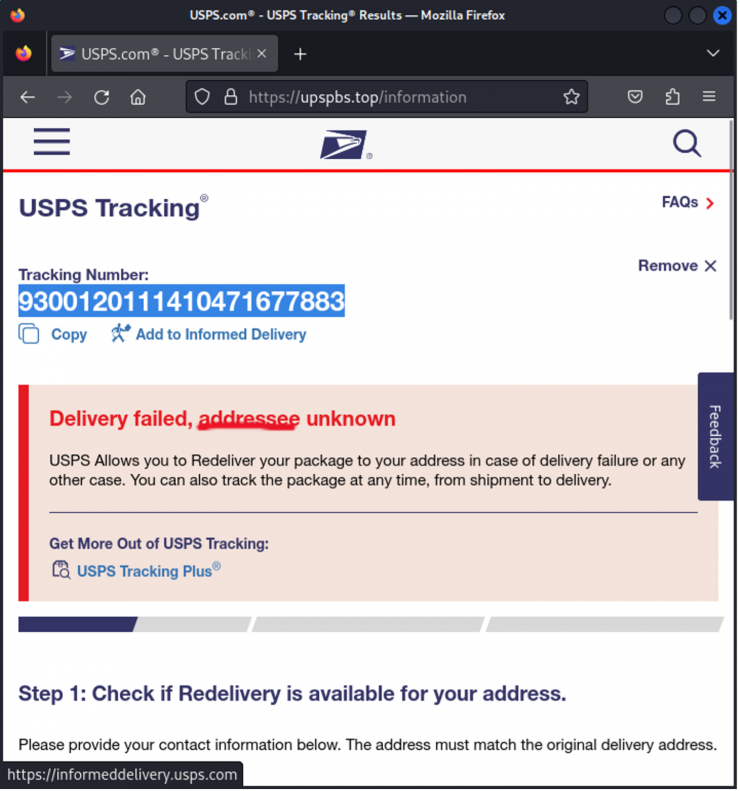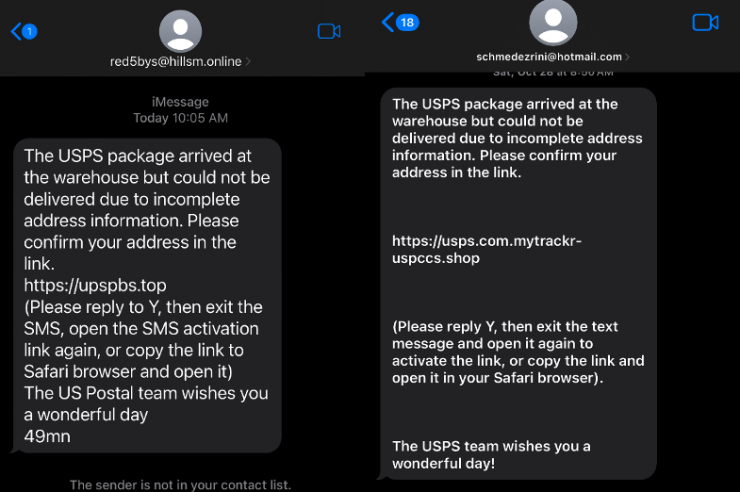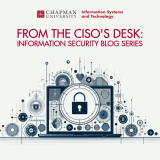
Don’t Get Smished During the Holidays!
December 15, 2023
In today’s digital age, the convenience of online shopping and instant communication has unfortunately given rise to a new form of deception known as smishing. Smishing, a portmanteau of “SMS” and “phishing,” is a cyber-attack that targets individuals through SMS or text messages. It involves sending deceptive messages that appear to come from legitimate sources, such as delivery services, to trick recipients into sharing personal or financial information, clicking on malicious links, or downloading harmful software.
Smishing attacks exploit our trust in text messages, often perceived as more personal and trustworthy than emails. Cybercriminals craft messages that invoke emotions like urgency, fear, or curiosity to manipulate the recipient into taking an undesired action. These messages may claim to be from a delivery service, notifying you of a package arrival or an issue with your shipment, prompting you to click on a link, or providing sensitive information.

To protect yourself from smishing scams, especially those related to fake delivery notifications, follow these essential tips:
- Do Not Respond or Click Links: Never click on links or respond to text messages from unknown or suspicious numbers. Even prompts to reply with “STOP” can be a ploy to confirm active phone numbers.
- Verify the Source: If you receive a message from a service provider, use their official contact information to verify its authenticity. Do not use any phone numbers or links provided in the suspicious message.
- Update Your Security: Ensure your smartphone’s operating system and security applications are up-to-date to protect against vulnerabilities that smishers may exploit.
- Use Caution with Urgent Requests: Approach messages that convey urgency, such as account updates or limited-time offers, with skepticism. These are often tactics used to create a false sense of urgency.
- Educate Yourself: Familiarize yourself with the common signs of smishing and stay informed about the latest scam tactics.
Being vigilant and informed can significantly reduce the risk of falling victim to smishing and other forms of cyber fraud. Remember, when it comes to your personal and financial information, it’s better to be safe than sorry.
Protecting yourself from smishing is crucial in safeguarding your personal information and financial well-being. Always be cautious and think twice before responding to unexpected text messages, especially those that ask for personal details or prompt you to click on a link.
If you receive a suspicious email in your Chapman account, do not click on any link or reply to the sender. Instead, please continue to report any malicious message by forwarding it as an attachment to abuse@chapman.edu. To see the latest trending scams, please visit www.chapman.edu/scams.
Stay safe and stay informed!
Chapman University Information Systems and Technology (IS&T)

